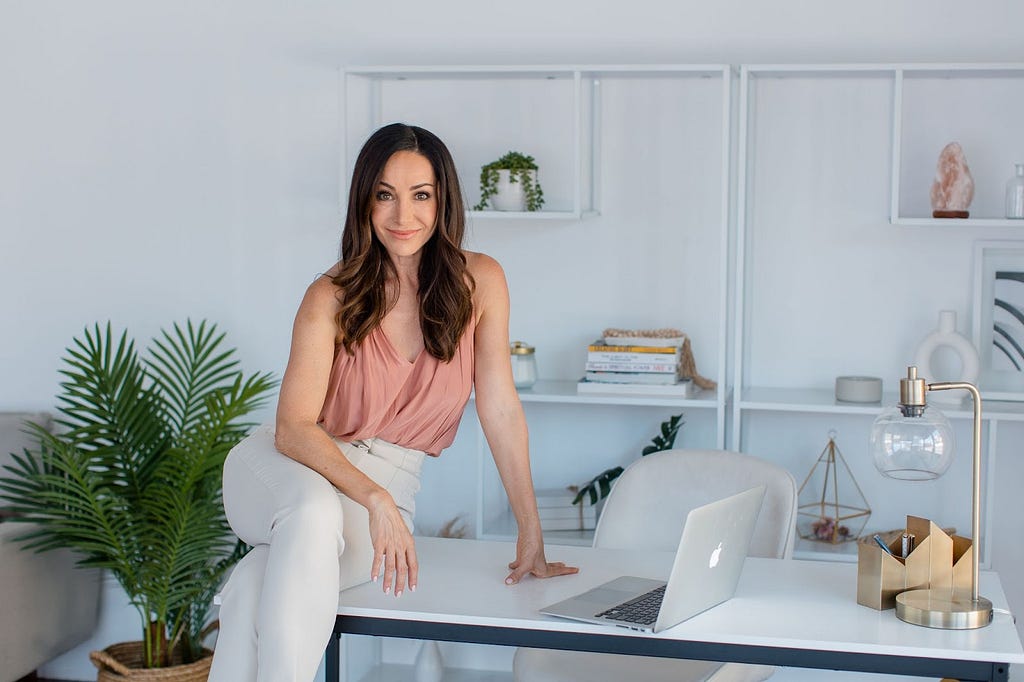
…You might have heard this, and maybe it sounds cliché, but often your mess becomes your message. A lot of the times, the areas where you’ve struggled or faced tribulation in your life, if you push through and find the answers, transitioning from darkness into light, then you can help others out of their pit. Since I struggled emotionally and with food, dealing with counterfeit comforts, my message now is about conquering these counterfeit comforts. I help people overcome them because I know what it’s like to be entrenched in that struggle and also what it’s like to be on the other side. So, the first step really is to delve deep into your own journey. You need to know who you are and what you’re passionate about…
I had the pleasure to talk to Robia Scott. Robia is a multi-talented individual whose career has spanned various creative fields. At a young age, she moved to Los Angeles, California, where she was deeply influenced by the film “Flashdance” (1983), which propelled her to pursue a career in dance. Her dedication to the art led her to attend The Los Angeles County High School For The Arts and later the Dupree Dance Academy in Hollywood on a full scholarship.
Robia’s professional career took off at the age of sixteen with her first job in Debbie Gibson’s music video “Shake Your Love.” She quickly gained fame in the industry, appearing in over thirty music videos. Her dance career reached a pinnacle when she worked with Prince, traveling the world as “Pearl” in his international tour “Diamonds and Pearls” and appearing on the album’s cover and in multiple music videos.
Transitioning from dance to acting, Robia made her mark in Hollywood, appearing in over fifty national commercials and popular television shows like “Beverly Hills, 90210” and “Buffy The Vampire Slayer.” After a successful stint on “Buffy,” she shifted her focus, leaving her flourishing entertainment career to pursue Christian ministry.
For fifteen years, Robia has been a prominent Christian speaker and teacher, traveling extensively in the U.S. and internationally. She authored the book “Counterfeit Comforts,” which discusses finding freedom from imposters that obstruct true peace, purpose, and passion. This book is available on her website and Amazon.
Her journey reflects a deep understanding of the challenges associated with body image and emotional eating, a topic she has been addressing for over two decades. Robia’s inside-out approach to these issues emphasizes the importance of understanding and combating emotions that lead to destructive behaviors. Robia’s multifaceted career, from her early start as a dancer to her role as a speaker and author, showcases her adaptability and resilience. Her experiences in the entertainment industry, coupled with her personal struggles and subsequent transformation, make her a unique and inspirational figure.
Yitzi: Good afternoon, Robia, it’s such a pleasure to meet you. Before we dive in, our readers would love to learn about your personal origin story.
Well, I had a pretty interesting childhood. I grew up in a bit of a gypsy-esque way with my mom, who liked to move around a lot. We lived in various tourist towns during the off-season. A significant part of my childhood was in the Florida Keys, which is a fantastic place to grow up. It was a laid-back environment with cutoffs, flip-flops, and after-school fishing trips. Later, I moved in with my dad for a more stable upbringing. It was a complete change, going from the Keys to a prep school in Westport, Connecticut. Around that time, I saw the movie Flashdance, and it changed everything for me. I got a perm, inspired by the movie, and decided to become a professional dancer. I started taking dance classes seriously, and by 16, I went professional.
Yitzi: So what happened next? How did you go from being a professional dancer to becoming a successful actress? What was the progression?
I started as a dancer and got an agent. I took the equivalency of my high school diploma, my GED, so I could start working professionally. I began getting jobs right away. My very first job was in the music video “Shake Your Love” by Debbie Gibson from the 80s. At that time, MTV was really rising, and there were a lot of music videos being made. I was involved in many of them. One day, I received a call to audition for Prince. I auditioned for his “Cream” video and found out after the first audition that he had seen my tape and really liked me. He was looking for identical twins but couldn’t find any. However, there was another dancer who looked a lot like me, so he hired us to play Diamond and Pearl for the album “Diamonds and Pearls.” It was initially just for one video, but it turned into all the videos for the album, the album cover, and traveling the world, dancing with Prince on his world tour. That was an extraordinary experience for a 21-year-old girl. After that, I retired from dance. I had a great career, but dancing with Prince was the pinnacle. When I came home from the tour, I decided to transition into acting.
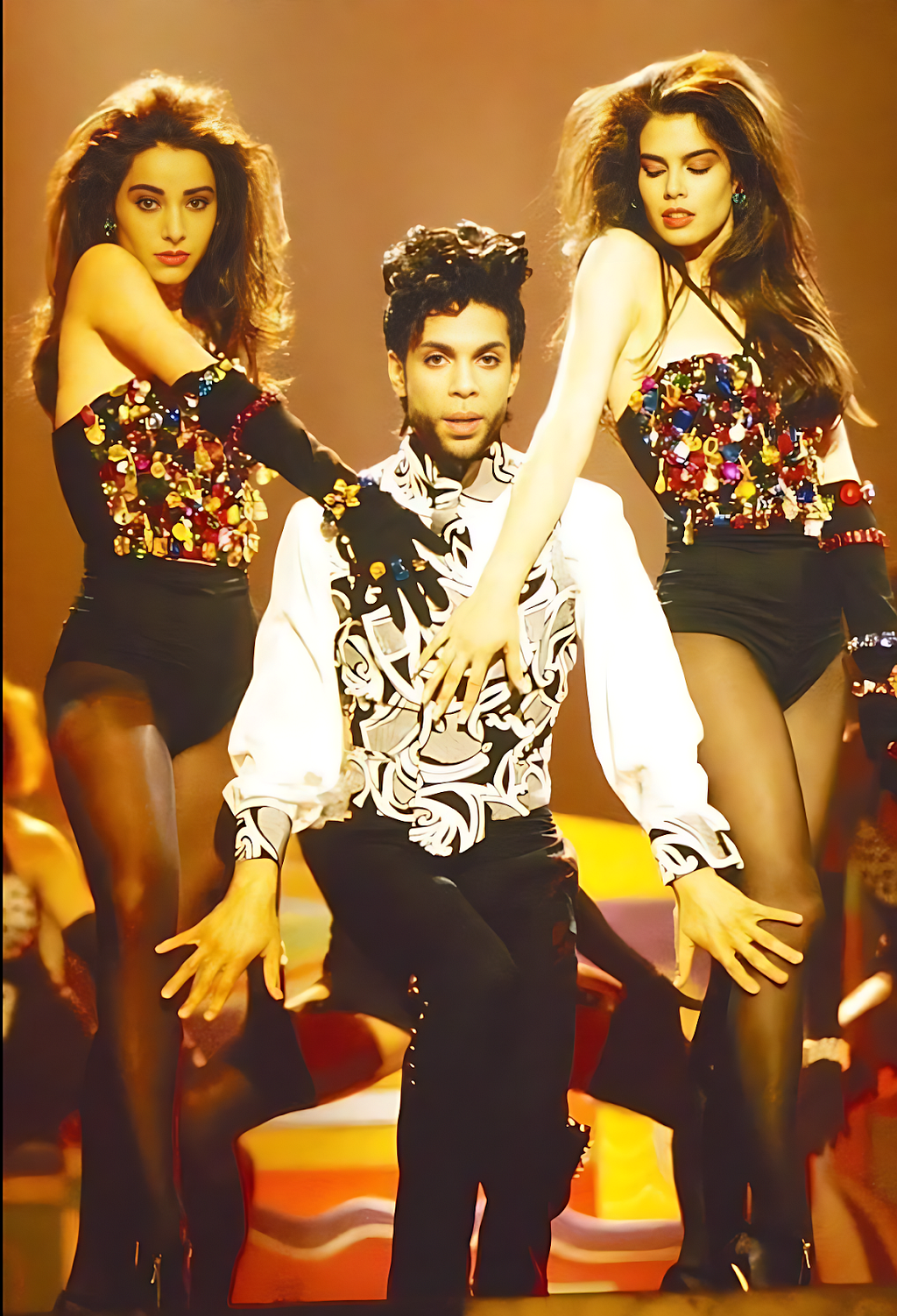
Yitzi: Okay, great, so let’s hear the story after that.
So basically, I pursued acting with the same intensity as dancing. Instead of taking one class a week, I was dedicating hours every day to it. Living in Hollywood, California at the time, it seemed like the next logical step was to expand my entertainment aspirations by venturing into acting. It offered more longevity than a dancer’s career, and I felt I had more avenues for expression, not just physically but also through speech, being more communicative and expressive.
I ended up getting an agent and followed the usual routine of going to auditions, feeling nervous, trying to figure out how to land jobs. My first break was on a TV show called “Beverly Hills 90210,” where I played Jill Fleming, Jason Priestley’s girlfriend from New York City. I did a couple of episodes there and then appeared in various other shows until I landed a role on “Buffy the Vampire Slayer.” I played Jenny Calendar for a few seasons. During this time, I did a lot of TV, film, and commercials. Eventually, I felt it was time to move on from that and explore new career paths.
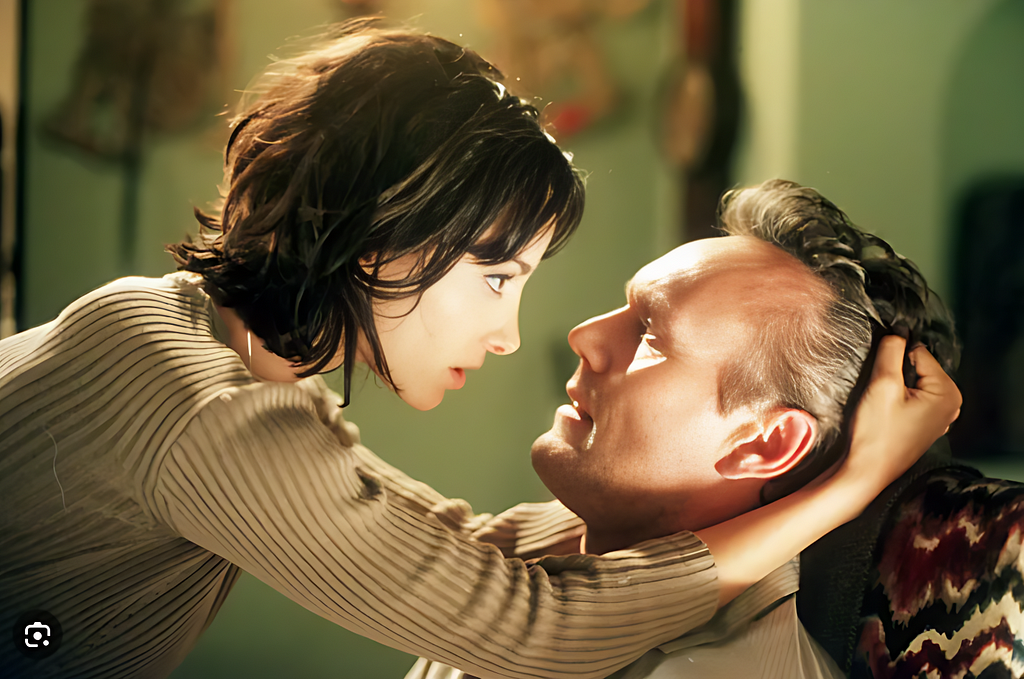
Yitzi: You have so many amazing experiences in different parts of your life. Can you share either your favorite story or memory from your career, whether it’s as a dancer, an actress, or a life coach?
Well, one of my favorite memories as a dancer was the first day of rehearsal for “Diamonds and Pearls,” for the “Cream” video. I remember it was another girl who looked like me; she was playing Diamond, and I was Pearl. We were in a dance studio in Los Angeles. The choreographer was there, and we were on the floor, stretching and chatting. In dance studios, the mirror is in front, so you can see the whole back of the room. I looked up in the mirror because I felt the environment change. Prince was standing in the doorway. It’s almost as if the lights dimmed, turned purple, and a smoke machine came on. That’s how it felt when Prince entered the room. To see an icon right in front of you, someone I had watched in “Purple Rain” and listened to all his albums, was surreal.
Prince was all decked out in his full suit, with buttons, a bandana, a cane, and high heels. He came in, they introduced us, put on the music, and we started learning a number. Within 10 minutes, I was wrapped around Prince, and he was wrapped around me. We were on the floor doing all this stuff, and I was just thinking how surreal it all was. During that rehearsal, he saw the chemistry we all had. That’s when he decided to actually name us Diamond and Pearl, and it turned into what it became. That was a life-changing moment.
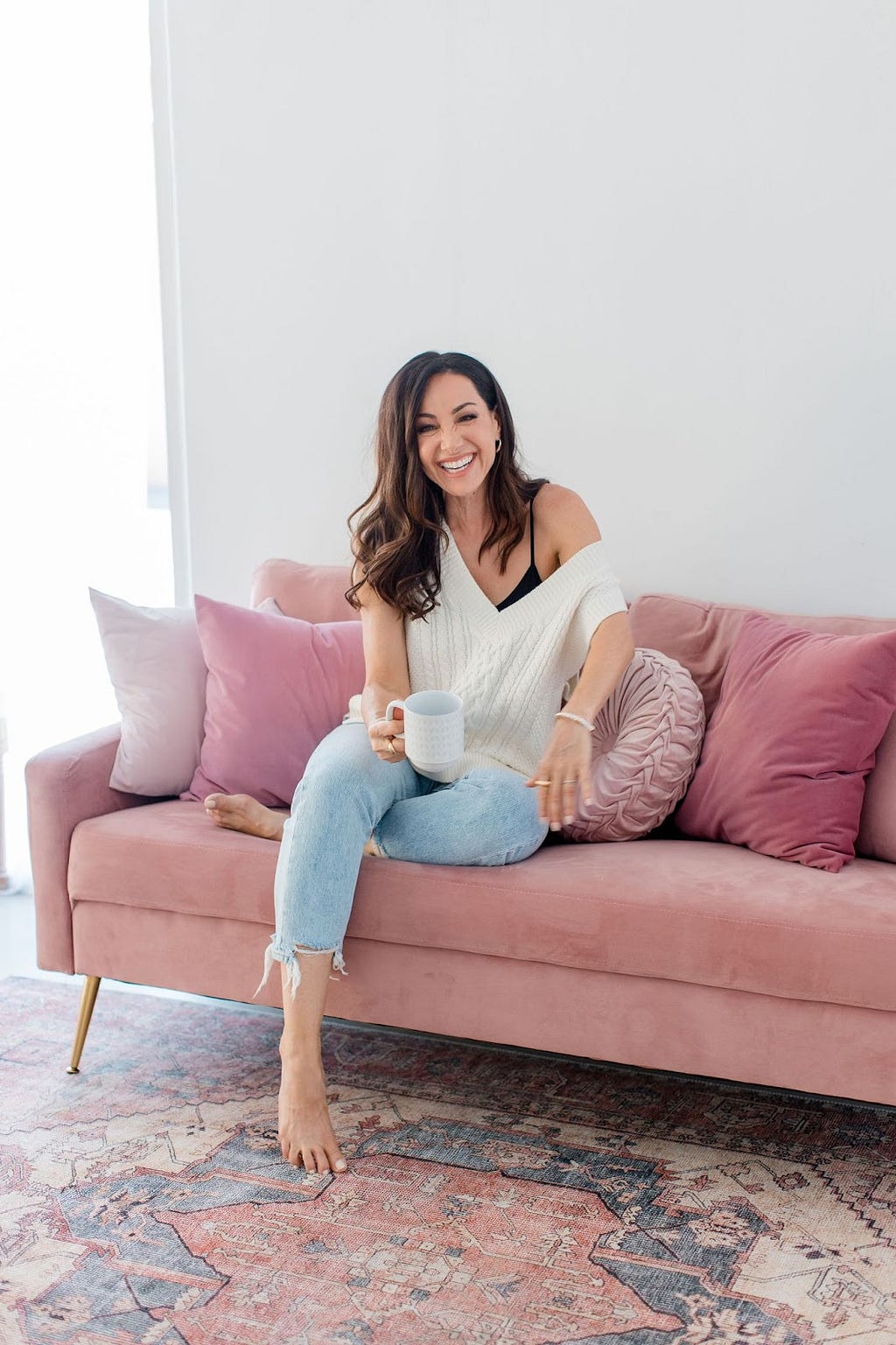
Yitzi: It’s been said that sometimes our mistakes can be our greatest teachers. Do you have a story about a humorous mistake that you made when you were first starting and the lesson that you learned from that?
Well, when I think about it, I don’t feel like I made any big mistakes. Initially, I didn’t know what I was doing, but I threw myself into it with full force. I remember my agent would ask for feedback from the casting director, and they’d say, “She doesn’t know what she’s doing. She’s green.” Being green means being inexperienced. But despite that, they found me confident and dynamic. I wasn’t afraid to take the world by the horns. So, I don’t see it as a failure or a mistake. My willingness to embrace failure, to look foolish, and to be in a state of learning has always been one of my best qualities. I’ve always been open to stepping into new territories and learning, which is not easy because it involves admitting that you don’t know everything. I remember as a young dancer, and later as an actor, embracing the learning curve in each new challenge. Now, in my current work, I help others step out of their comfort zones, embrace the messiness, and be open to making mistakes. This way, they can uncover more about who they are, their passions, and their gifts. I aim to help them, and myself, live a life where we’re operating on all cylinders, feeling fully aligned with who we are meant to be. I strive to feel good in my body, clear-minded, healthy, whole and connected emotionally, spiritually, and physically.
Yitzi: So have you left Hollywood, or are you still straddling both?
Actually, for a while, I completely left Hollywood. I think it was around the time after “Buffy the Vampire Slayer” when I felt I was done. I wanted to embark on a personal quest for self-awareness. Despite my success as a young person — traveling the world, being on TV, and making good money — I was struggling internally. I didn’t really know who I was. I was chain-smoking and had issues with eating and body image, which are common struggles for women, but they’re magnified in the entertainment industry. I felt successful in certain ways but not truly successful. I wanted to be successful in my career and financially, but also comfortable in my own skin, not controlled by food or other issues. That’s when I took a break from entertainment to dive deep into understanding who I am, to find freedom, to address my food issues, and to become comfortable with myself. I read a lot, took classes, and went on a spiritual journey. It was an amazing journey. I believe if you seek earnestly, you will find answers. I was searching for truth and freedom, and I was very hungry for it.
During this process, I started to find my own healing. I’ve realized in my 20 years of working with women, and some men, that what we often think is the issue isn’t actually the issue. We blame cigarettes, alcohol, or food, trying to control them through various diets or restrictions. However, as I delved deeper into this journey, I had several epiphanies. I realized that food wasn’t my problem. At first, this was confusing because it felt like it was. But then I understood that food was just a symptom of a deeper issue, like the fruit of an unhealthy root. My obsession with weight and food was the result of underlying issues.
I started to explore those deeper roots, the drivers of our actions. Specifically, I questioned what was driving me towards food. A lot of it boiled down to unprocessed feelings. We often don’t deal with feelings of discomfort, abandonment, and rejection because we’re not taught how to process them at home or school. These unaddressed feelings become a driving force. To truly heal, we must feel and deal with these emotions. If we suppress them with alcohol, cigarettes, or food, we end up in bondage.
So, long story short, I embarked on a journey of self-discovery, asking myself, “How do I really feel?” I wanted to uncover my true emotions and avoid what I call “counterfeit comforts,” like smoking cigarettes or indulging in a pint of ice cream. My goal was to find authentic comfort, where I could still enjoy ice cream, but not for the wrong reasons, not driven by obsession or looking for emotional solace in food, which is only a temporary fix and essentially an imposter for real emotional fulfillment.
This journey was a significant part of my personal growth and in becoming more fully who I am. Through a lot of trial and error, I started to share my experiences with others and realized I had found something valuable. I discovered a technique, a way to understand oneself, to grow, and to become aware of the reasons behind our actions. I always say it’s not so much what you’re doing, but why. Instead of focusing on changing our actions, understanding the reasons behind them can lead to true change. Healthy roots produce healthy fruits. By understanding my behaviors and motivations, I can initiate change at the root level and bring about real change in my life.
So yes, I did leave Hollywood and never thought I’d go back. But years later, through what seemed like a series of coincidences or perhaps divine intervention, opportunities started coming my way. People reached out to me, and I ended up doing a couple of movies and a TV show recently. So, I still have some connections in that world, but I’m not actively pursuing it. I don’t have agents anymore, and I don’t go to auditions. My real focus now is on coaching and helping people to fire on all cylinders.
Yitzi: So Robia, you have so much impressive work. Can you share with our readers some of the exciting new projects or initiatives that you’re working on now and where you see yourself heading after that?
Robia: Currently, I’m not focused on entertainment. I’ve done a couple of films in the last few years, but my main focus is my 90-day coaching course. This course is about achieving optimal health for the body, soul, and spirit. It’s about feeling aligned, looking and feeling great, and losing weight without resorting to dieting or anything restrictive. I’m working with many women who are looking to lose weight and don’t know how to, who seek emotional healing but are unsure where to start, and who want to connect with themselves but aren’t sure how. I know how to help with all these things. That’s my focus right now. I have a few courses, each targeting different areas, but the one I’m currently excited about is called Body, Soul, and Spirit. It has been an amazing experience walking women through the process, helping them get healthy, lose weight, and feel incredible. My motto is, if you don’t look better than you’ve ever looked or feel better than you’ve ever felt, then this course is for you.

Yitzi: How would you compare and contrast your personal character with the character you play in Buffy? How are you similar and how are you different?
Robia: That’s a fantastic question. I loved playing Jenny Calendar in Buffy. When I first saw the script, I knew it was meant for me. The aspect I connected with most was the banter. I adore witty one-liners, sarcasm, and intellectual stimulation, which was a big part of her character. She was always quick-witted, especially with her love interest. That’s where I really connected with her. I would say we’re both seekers, but Jenny had a different flavor, leaning more towards occult-type things. Back in the day, I might have explored that a bit, but that’s not where I am now. So, our interests diverge there. But our main similarity is definitely in our love for smart, quippy banter.
Yitzi: That’s great, beautiful. Okay, this is our signature question. Robia, you have achieved a lot of success. Can you share five things needed to create a successful career as a life coach, especially for someone just starting out in the field?
Robia:
- Well, the first thing is you have to be clear on your message. And it’s crucial to niche your message. Many of us as coaches believe we can teach on a wide range of topics, but the key to success lies in specializing. They say the riches are in the niches. So, it’s important to figure out what your signature is, which is often related to the challenges we’ve overcome.
- You might have heard this, and maybe it sounds cliché, but often your mess becomes your message. A lot of the times, the areas where you’ve struggled or faced tribulation in your life, if you push through and find the answers, transitioning from darkness into light, then you can help others out of their pit. Since I struggled emotionally and with food, dealing with counterfeit comforts, my message now is about conquering these counterfeit comforts. I help people overcome them because I know what it’s like to be entrenched in that struggle and also what it’s like to be on the other side. So, the first step really is to delve deep into your own journey. You need to know who you are and what you’re passionate about.
- Become an expert in something. There are many doctors out there, but when you’re a brain surgeon, you’re on another level. Not everyone can do what you can do. We’re all uniquely made, and there are things about you that are special. Sometimes, these unique traits don’t stand out because they feel so familiar, just part of who you are. For example, when I was a kid, I used to play school. I lined up all my stuffed animals, made tests for them, took their tests, and then recorded their answers in a grade book. That was just fun for me. Now, as an adult, I find myself teaching, coaching, counseling, and helping others to be higher, better, and greater. This was inherent in me. So, start to uncover who you are.
- And then you’ve got to work hard. You need to train. I encourage you to get a mentor. We have to invest in our success. Don’t try to figure it out on your own. It’s worth investing money to save yourself time and energy. Find coaches and classes, learn from those who have been where you want to go, and glean from them. That will make a huge difference. So, find out who you are, niche it down, discover your message, and get a mentor.
- In the area of coaching, it’s crucial to understand marketing. Knowing your message is essential, but just creating an incredible course isn’t enough. People need to know you exist, and that’s a whole different world. Creatives often don’t think about the business side. They might say, “Forget business, I’m just an artist.” But if you want to be successful, you need to be a business person. Study marketing and sales. Learn how to identify your target client and how to communicate with them in a way that’s appealing. It’s about throwing out bait that’s right for your target audience, to find your tribe. Those few things will keep you busy for a while.
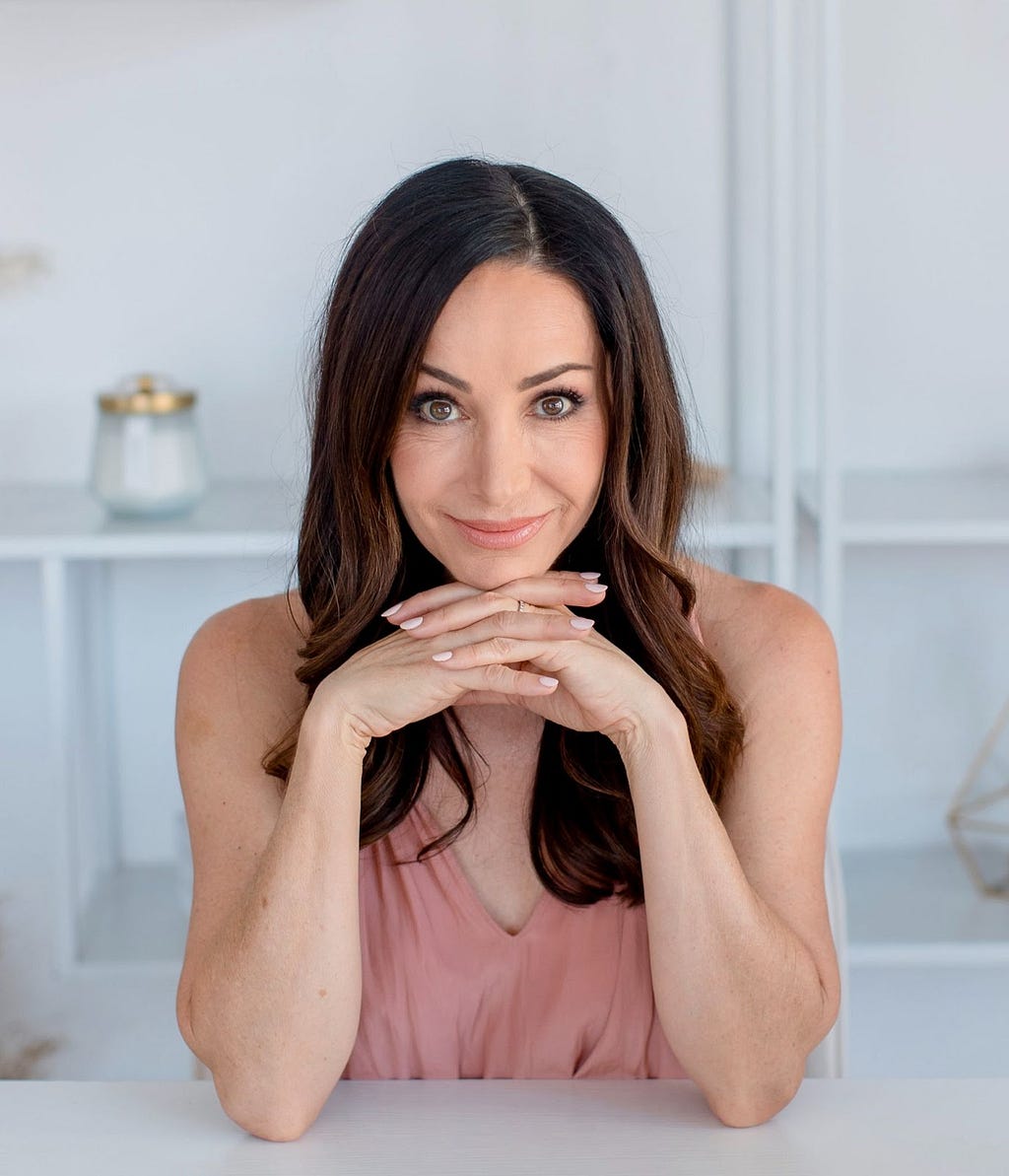
Yitzi: So, you seem to be thriving on all cylinders. Could you share with our readers some of the self-care routines or practices you do to help your body, mind, and heart thrive?
Oh, good. I love that. Well, I definitely eat healthy, not 100% of the time, because I believe in balance. So, I believe in cake and burgers, but not for every single meal of the day. Eating healthy and getting a lot of sleep are important to me. I’m a big fan of sleep. Intermittent fasting, I think, is amazing for everyone. It keeps your body and health in great shape. If you’re interested, in learning a bit about intermittent fasting reach out to me, and I’ll help you in that area. I think it’s also great to spend some reflective time with journaling, being contemplative and reflective so you know who you are. And then there’s the spiritual aspect. We didn’t talk about that too much today, but I think it’s a really important piece, too. Connect with that aspect of yourself, whatever that might look like for you, because we are body, soul, and spirit. So, we want to address all of those aspects.
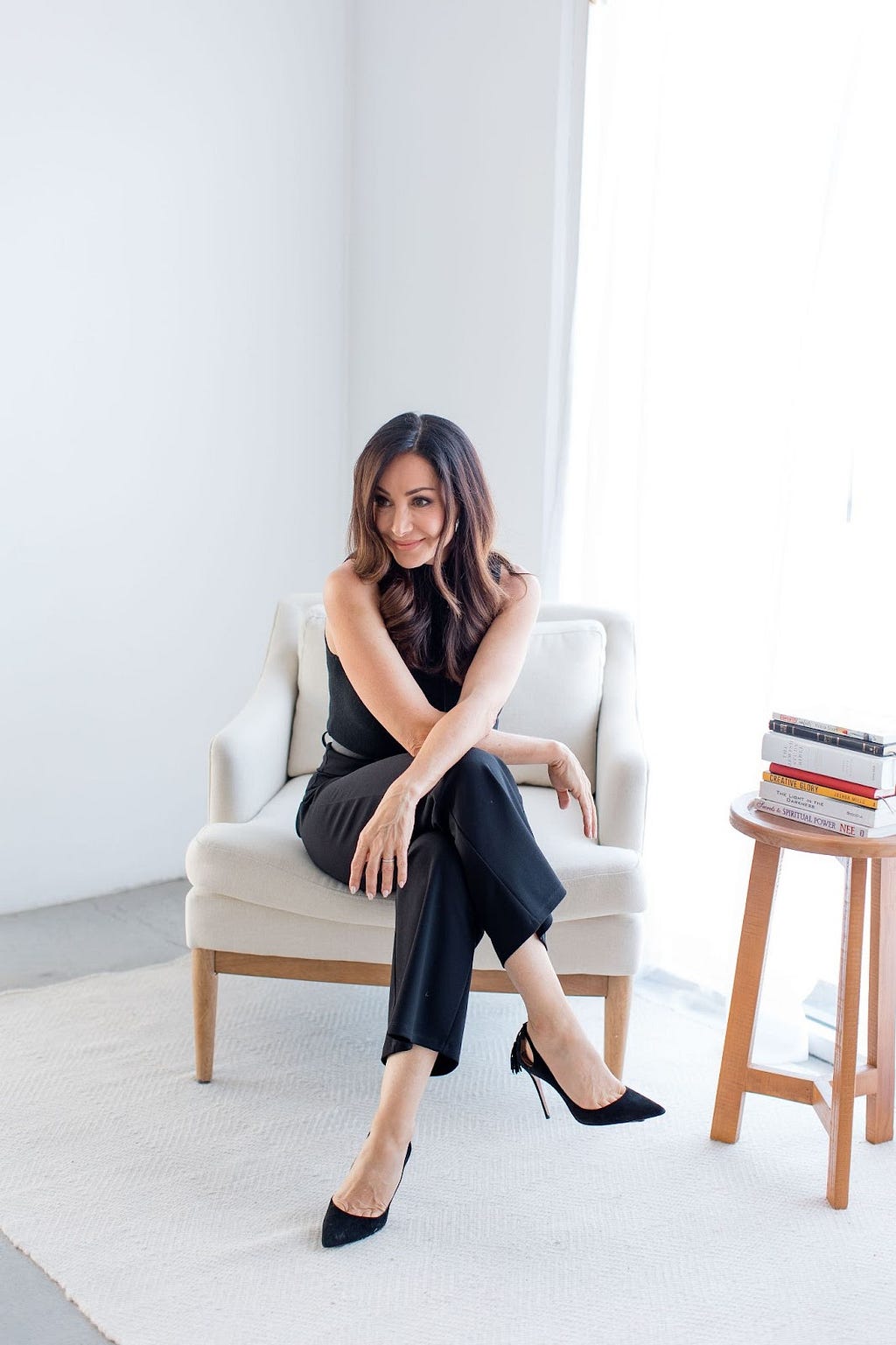
Yitzi: Okay, final question. Robia, you’re a person of enormous influence. If you could spread an idea or inspire a movement that would bring the most amount of good to the most amount of people, what would that be?
Wow. That’s such a vast and incredible question. What I’m most passionate about is the idea that the more you can be uniquely and fully yourself, the more you impact the world. Instead of suggesting something broad like spreading love everywhere, I believe that the more each person is aligned with their ordained blueprint, the more influence they have, the more they’re releasing the gift and creativity inside of them. Imagine if all of us were firing on all cylinders, what kind of world we would live in. Athletes doing their thing, musicians doing their thing, moms doing their thing — everyone just really living in the fullness of who they are. That would be my idea.
Yitzi: Amazing answer. How can our readers get in touch with you to engage in your programs, and follow your work? How can they support you in any way?
You can find me on my website, which is robiascott.com. I’m also on Facebook under Robiascott and on Instagram at Robiascott. Just type up Robia, and you should be able to find me. There aren’t a lot of Robias out there.
Yitzi: Robia, it’s been an honor to meet you. I wish you continued success and blessings in your great work. And I hope we can do this again next year when you have another exciting project.
Let’s do that. I really appreciate talking with you. Thank you. That was a lot of fun.
Robia Scott On The Five Things You Need To Create A Highly Successful Career As A Life Coach was originally published in Authority Magazine on Medium, where people are continuing the conversation by highlighting and responding to this story.